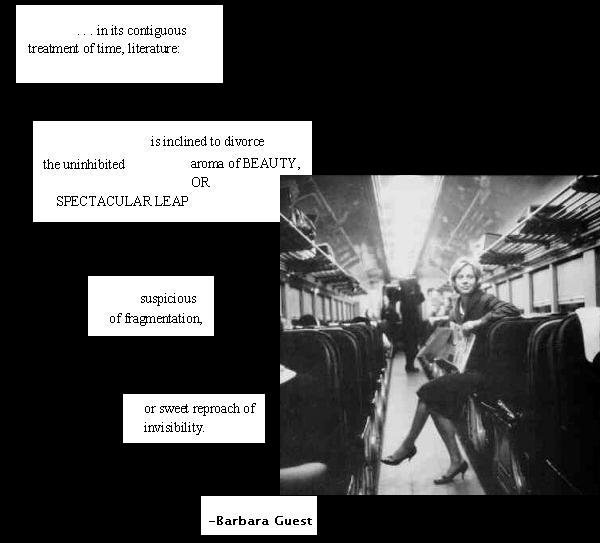"Technique is just a means at arriving at a statement." Pollock expresses that his art is contrived and thought out but still free and loose. He controls the flow but still wants the art to be able to live and breathe on its own. I didn't understand the use of the Hitchcock music and the dramatic scene of him throwing the cigarette aside. The changing of the shoes reminded me of an athlete with certain practices and superstitions on game day.
This is a quote from Wikipedia. http://en.wikipedia.org/wiki/Jackson_pollock
“When I am in my painting, I'm not aware of what I'm doing. It is only after a sort of 'get acquainted' period that I see what I have been about. I have no fear of making changes, destroying the image, etc., because the painting has a life of its own. I try to let it come through. It is only when I lose contact with the painting that the result is a mess. Otherwise there is pure harmony, an easy give and take, and the painting comes out well.”
In many of the essays we’ve read, authors have mentioned writing poems by the ear and not spending time planning it out, engineering or manufacturing poems. Although I saw an obvious pattern with the strokes and painting techniques in Pollock’s video, I see the freeness as well. I imagine he goes into a trancelike state while painting and thus creates a meaningful work of art specifically for himself. I have yet to do that with poetry.
Church of the Light by Tadao Ando

Friday, May 11, 2007
Subscribe to:
Post Comments (Atom)


5 comments:
I don't know about you, but I find the Pollock citation to be pretty familiar to my own experience as a poet. Even though his discussion of a kind of collaboration or conversation with the painting as if it has a life of its own seems awfully romantic, it absolutely describes my experience when making a poem.
At first I write a draft. I think it's great. I go away from it. Then bit-by-bit a kind of obsessive-compulsive desire sets in as if the poem calls out. I tweak it and tweak it and tweak it for days and days until only a certain essence of the original remains. Happy accidents occur. I use words that I don't even know the meanings of, for they just sound or look right, seeming to fit. Parts of the piece move from here to there. Sirens come out of the wall. It's a sexual act, a dance, a collaboration at least. Then at a certain point after the piece is completely exhausted, after I'm certain that it's ruined, having lost it's raison d'etre, suddenly it all fits together. It's complete. A spark ignites.
Have you ever played with a Lite Brite? I think of it this way sometimes: Y' know that black screen full of holes that fits into a frame in front of a lightbulb in the Lite Brite game? I think of that black screen as analogous to a poem. It's full of holes, holes all requiring some sort of plugging up. Eventually all the holes plug, interact vertically, horizontally, dynamically with one another in the diagonal and then the on the seventh day the poem rests.
Lite Brite is waaay before my time. =)
Ah, c'mon! My sons are 5 and they've got one. Ever been to TOYS R' US? Where've you been?
Lite Brite was not before my time, I understand what you are talking about, Scott. I remember that it was even fun to do random things, sometimes more fun than the actual things because those seemed too hard then. Poetry and Lite Brite, sounds like a great conceit could come from that. And then, some know that I enjoy this, on the seventh day, rest.
Lite-Brite, electric toy introduced in 1967 by Hasbro.
Post a Comment